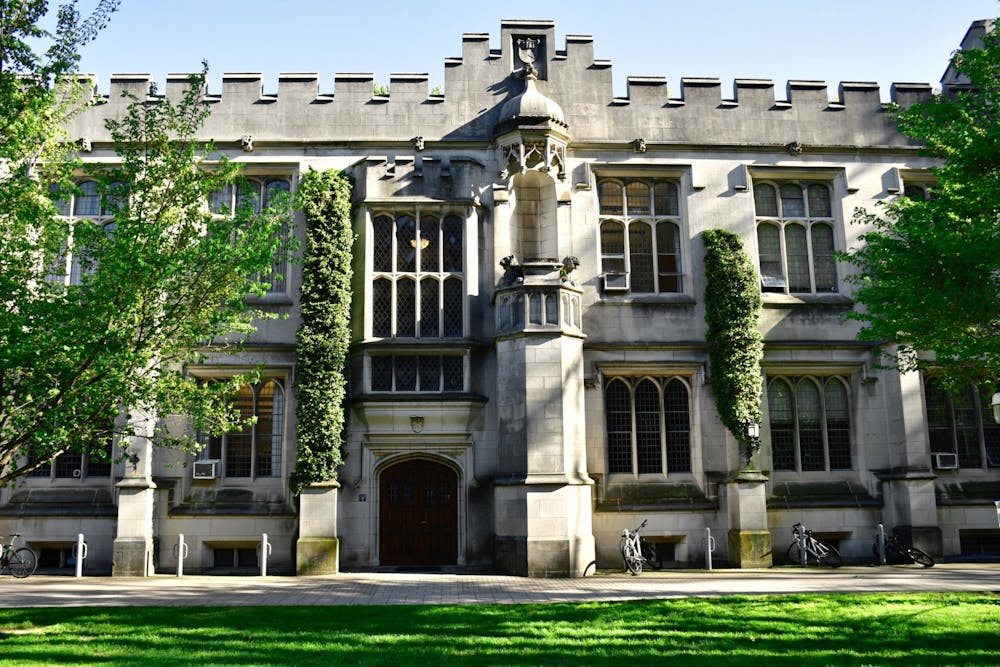On Jan. 18, Martin Luther King Jr. Day and just 48 hours before former U.S. President Donald Trump’s term would come to an end, the White House released a long-awaited report by the President’s Advisory 1776 Commission.
Though the report was revoked by the new Biden administration and removed from the government website the day of the inauguration, the short-lived document showed the outgoing administration’s political priorities in its final days and saw overwhelming backlash from historians. The Daily Princetonian spoke with four Princeton professors in the history department to further contextualize the report’s significance.
Trump assembled the commission last September to promote what he termed “patriotic education.” Many observers saw the move in part as a reaction to The New York Times’ “1619 Project,” a Pulitzer Prize-winning feature that anchored slavery at the center of the American story and faced intense criticism from conservative thinkers.
The 1776 report purported to “enable a rising generation to understand the history and principles of the founding of the United States in 1776 and to strive to form a more perfect Union,” according to its introductory statement. But the University historians who spoke with the ‘Prince’ claimed it made little to no effort at genuine historical understanding.
“I think this is just a very political document that isn’t really about understanding founding principles and history,” Julian Zelizer, the Class of 1941 Professor of History and Public Affairs, told the ‘Prince.’ “[It is] a pamphlet that’s wrapped in history as a way to promote arguments the administration has been making since day one.”
Zelizer said that the report “doesn’t hold much water,” in part because it wasn’t authored by historians. As others have pointed out, the commission’s 16 members did not include a single professional historian. The committee was chaired by Larry P. Arnn, the president of Hillsdale College, who could not be reached for comment in time for publication.
Professor David Bell told the ‘Prince’ the report’s seeming equivocation between early 20th-century progressivism and fascism was “pretty incoherent, ill-informed, and silly.” He saw the Trump administration’s goals in releasing it as rooted in an attempt to control educational narratives.
“Most immediately, the motivation was to sort of counteract the 1619 Project … particularly since many school districts have decided to use the 1619 Project in their curriculum,” Bell said.

In Dec. 2019, two Princeton professors — James McPherson and Sean Wilentz — spoke out against what they saw as historical errors in the 1619 Project, sending a letter to The New York Times requesting the paper issue corrections. Among other disagreements, the letter, co-authored with three historians from peer institutions, called the project’s claim that a primary reason for the American Revolution was colonists’ desire to preserve the institution of slavery “not true,” and asserted the Project was “misleading” in its depiction of Lincoln’s views on Black equality.
But in recent interviews with the ‘Prince,’ both McPherson and Wilentz expressed strong disagreement with the 1776 report, despite their continued belief that the 1619 Project contained historical inaccuracies.
Wilentz described both the project and the report as “polemics.”
“Polemics are essentially political, they’re driving home a political point of view and using history to do that,” he said. “There’s a lot of that out there today … this Trumpian document was responding to certain versions of all that, but just the flip side of it.”

“One tries to whitewash American history, and the other tries to demonize American history,” he added. “Neither is satisfactory as history.”
Wilentz clarified that “you cannot understand” American history without understanding the “centrality of slavery” within it, saying that in theory he supports attempts to place slavery at the core of the nation’s history. “But that doesn’t mean that every attempt to do that is successful,” he said, in reference to what he saw as the failures of the Times’ project.
In addition to citing “culture war” and “deep state” motivations behind the Trump administration’s report, McPherson similarly saw it as responsive to the 1619 Project.
“While I think the 1619 Project has problems, nevertheless, countering it the way the 1776 report did — it exalted one idea or approach to American history, that it is a triumphant story — is not the answer to the shortcomings of the 1619 Project,” McPherson told the ‘Prince.’
In Zelizer’s view, historical discussions of the project, including critical ones, are “always good conversations to have” because “you learn more that way.”
“There are many historians, colleagues of mine here and elsewhere, who had legitimate debates about particulars in the [1619 Project] and about bigger claims,” he said.
Zelizer said, however, that the release of the 1776 report highlighted for him that many of those — “especially in the political sphere” — who engaged in criticism of the 1619 Project “weren’t really serious” in their approach to understanding the history.
In general, Zelizer said the report was littered with “erroneous statements,” including claims about identity politics, the founders’ approach to slavery, and the relationship between fascism and progressivism.
Still, with the Biden administration’s removal of the report and the fast pace of recent news cycles, the professors felt the long-term importance of the report should not be overstated.
“In the end it won’t really define much,” Zelizer said. “All the other stories definitely overwhelm this.”
“This [Trump] administration is — thank God — history now,” Bell told the ‘Prince.’ “My guess is I think this will be forgotten fairly quickly.”
Professors Tera Hunter, Beth Lew-Williams, Alison Isenberg, Wendy Warren, Kevin Kruse, Matthew Karp, and Joshua Guild either did not respond in time to or declined requests to be interviewed for this story.








